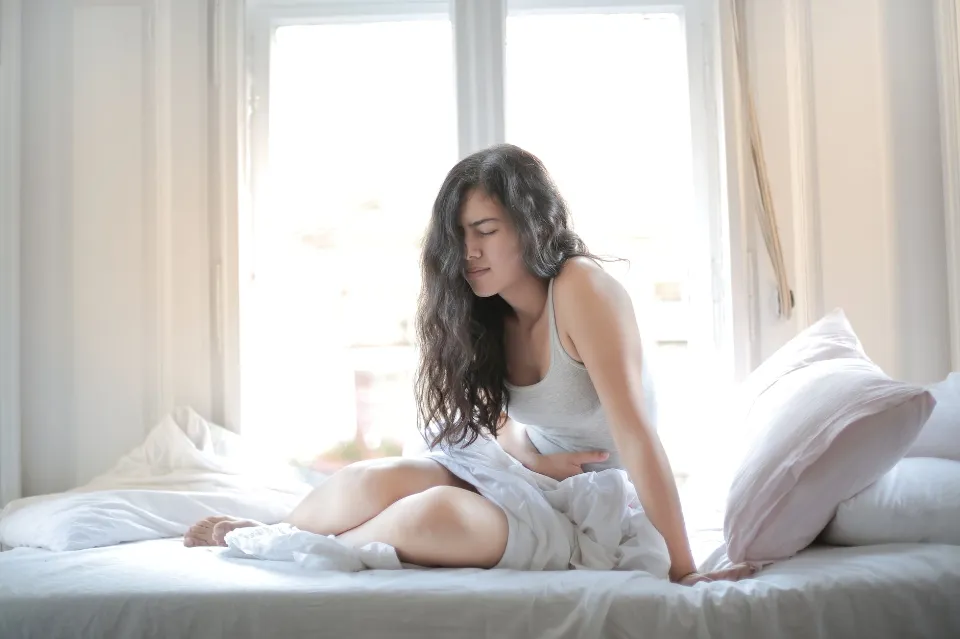
How to Sleep with a UTI – How to Ease Cyrtitis at Night
All people hate urinary tract infections (UTIs). They could take place at any time and could be excruciatingly painful. If you have a UTI, they can be so uncomfortable and painful that you might have trouble falling asleep, so you need the right UTI sleeping position.
The best sleeping positions for preventing UTIs are on your back with a pillow between your legs or on your side with a pillow under your knees.
In this article, we’ll go over some advice for sleeping with a UTI.
Symptoms of a UTI

Peeing should be painless and odorless for the majority of hydrated, healthy people, with only a very faint ammonia smell in some cases. In the event that isn’t the case, an infection may exist. Here are a few common signs of a UTI to look out for:
Urgent and Frequent Urination
The bladder lining may become irritated and swollen as a result of a UTI, making it more sensitive. More frequent and urgent urination follow as a result. You might also observe that despite an urgent need to urinate, little to no urine is produced.
Burning Or Pain While Peeing
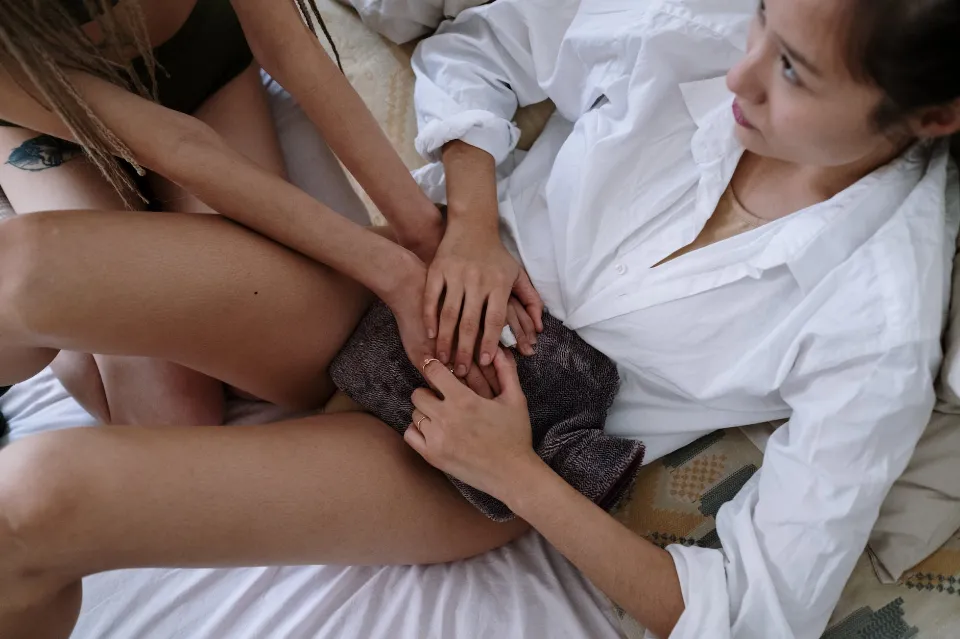
Another common symptom is dysuria, which is the burning sensation while urinating. However, Eilber cautioned that pain or burning that is unrelated to urination may be a sign of a vaginal infection or something else. Pain from a UTI typically coincides with urination.
Read More:
- How to Sleep After Wisdom Teeth Removal
- Simple Ways to Sleep with a Stomach Ulcer
- Can You Sleep with a Tampon In
- Best Way to Sleep with Occipital Neuralgia
Smelly Or Cloudy Urine
According to Ramin, your urine may occasionally have a noticeably strange smell or appear cloudy as one of the early indicators of an impending UTI. In particular, if the smell is accompanied by a cloudy appearance, it may be an indication of a urinary tract infection or kidney stones if you suddenly notice a foul or other unusual smell to it.
Loss of Control
In addition, a UTI episode might cause you to lose control of your bladder. The symptoms of kidney-related UTIs can include those listed above and are frequently accompanied by fever and back pain.
How to Sleep With a UTI?
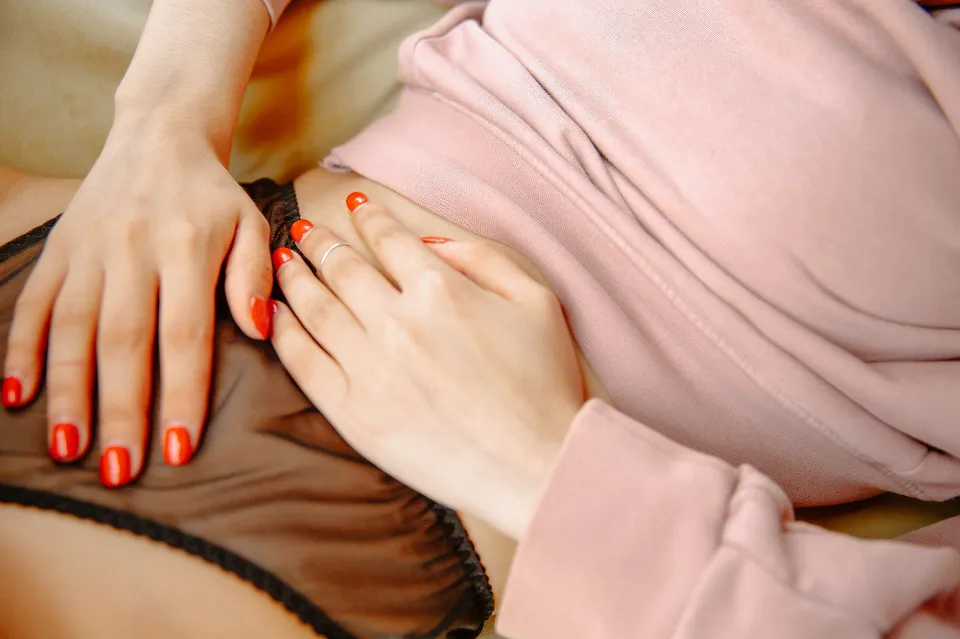
Because of the frequent urination needs and associated pain, it can be very challenging to sleep when you have a UTI. However, there are a few things you can do to reduce the discomfort and help you fall asleep.
Here are some at-home methods to use to help you sleep when you have a UTI:
Avoid Caffeine and Other Drinks That Can Irritate Your Bladder
There are many ways to relieve UTI pain, but one of the most crucial is to stay away from beverages that can irritate your bladder. This covers beverages that are sweet or acidic as well as stimulants like caffeine and other energizers. Alcohol can also exacerbate It is best to avoid it completely because it can cause UTI symptoms.
Instead, concentrate on consuming plenty of liquids throughout the day to aid in the removal of bacteria and to hasten the healing process. You should always drink water, but you might also want to consider cranberry juice or herbal tea. Just make sure to stay away from any alcoholic beverages that could exacerbate your symptoms.
Use a Heating Pad Or a Hot Water Bottle
A heating pad or hot water bottle can be a great choice if you need immediate relief for UTI sleeping position. The inflammation and pain brought on by a UTI are relieved by the heat. Simply place the heat source on your back or lower abdomen for 10 to 15 minutes at a time. Within a few minutes, you ought to start to feel relieved.
Limit Your Fluid Intake in the Evenings
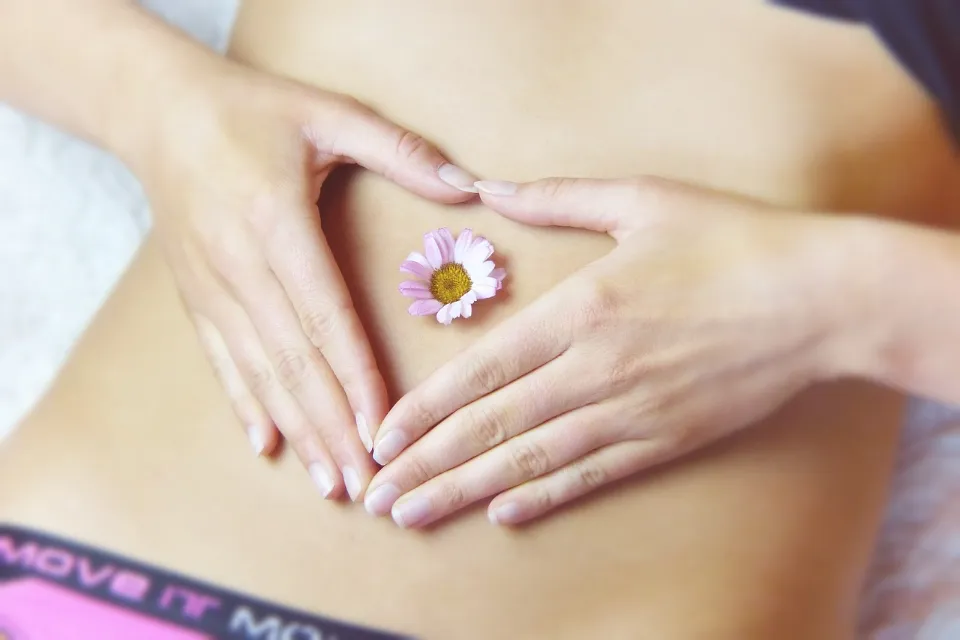
Limiting your fluid intake in the evening is among the simplest and most efficient ways to ease discomfort. So that your body has a chance to heal, this helps to lessen the urgency and frequency of urination.
Empty Your Bladder before Going to Sleep
Emptying your bladder prior to bed is one of the simplest and most efficient ways to reduce UTI discomfort at night. By doing so, the chance of further infection will be diminished and the bacteria will be flushed out.
Why UTI Pain Happens at Night
Eilber contends that nighttime does not make UTI pain or other symptoms worse. The symptoms of frequency and urgency are what make them more bothersome because people aren’t as preoccupied with their daily activities, and they force you out of bed.
Because you aren’t emptying your bladder as much as you would during the day, UTI discomfort may also seem worse. Your infected bladder’s inflamed walls become sore from the pressure of collecting urine against them.
What’s the Best Position to Sleep With a UTI?
When suffering from UTI, people frequently ask which side to sleep on. Unfortunately, there is no ideal sleeping position for UTI. You can adjust your UTI sleeping position, though, to lessen the discomfort caused by a UTI at night.
As it will pressurize the bladder and aggravate it further, avoid sleeping on your stomach.
Try to keep your legs slightly apart while lying on your back if you prefer to do so, as this may lessen urinary tract irritation. You can also place a warm water bottle on your abdomen to further promote relaxation.
If you prefer to sleep on your side, you can lie on either the left or the right. However, sleeping with your knees tucked into your chest in the fetal position may help you feel less pain and sleep better.
When to See a Doctor
It is best to see your doctor as soon as possible if you are exhibiting signs of a UTI. A UTI during pregnancy can be harmful to both the mother and the fetus.
To identify the main bacteria causing your infection, your doctor will run the required tests, such as a urine culture. The medication they recommend will then be tailored to your unique needs.
Once more, you don’t want to ignore this for too long because your UTI could become much worse. According to Ramin, it is possible for the bacteria to reach your kidneys in extremely rare circumstances, making the UTI more challenging to treat.
Conclusion
People who have UTIs frequently wonder how to relieve UTI burning quickly, why UTIs hurt more at night, what home remedies can help with UTI discomfort, how to treat severe UTI pain, and other related questions.
It is important to note that although UTIs frequently recur, the condition is treatable with regular use of over-the-counter medications and natural remedies.
Prescription antibiotics and medications work best for treating urinary tract infections. However, non-pharmacological methods are the most effective at preventing their recurrence.
The burning sensation when urinating is only one aspect of managing UTI. Additionally, bladder infections and discomfort are treated.
Right UTI sleeping position is preferable when dealing with UTI. Altering your way of life may also help ease the pain associated with UTIs at night.
When suffering from UTI discomfort, urinating before bed, refraining from drinking water before bed, and using hot water bottles may all help to provide much-needed relief.
FAQs
What Position Should I Sleep in With a UTI?
Any sleeping position that relieves pressure on your pelvic muscles, such as the foetal position or, if you prefer sleeping on your back, spreading your legs apart, would be the most comfortable for anyone dealing with a UTI.
How Should I Sleep With a UTI Constant to Pee?
Wear incontinence pants or use a pad to contain leaks. These may lessen your anxiety about urinating while you sleep or provide you with the option of staying in bed to urinate. Warm up your abdomen with a hot water bottle or heating pad to lessen bladder pressure or discomfort. In order to fall asleep, completely empty your bladder.
Is Lying Down Better for UTI?
Common UTI symptoms include lower abdominal pain, a constant urge to urinate, and pain during urination. While lying down can sometimes make discomfort more bearable for some people, it can also accentuate it. Some lying positions can put pressure on your bladder and cause you to feel the urge to urinate.



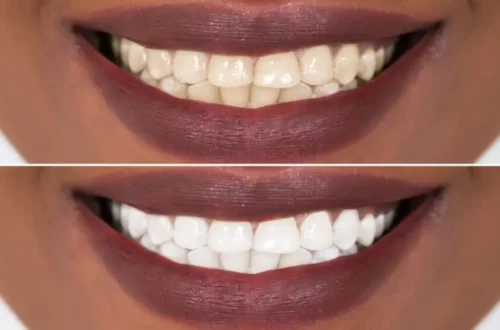

Average Rating